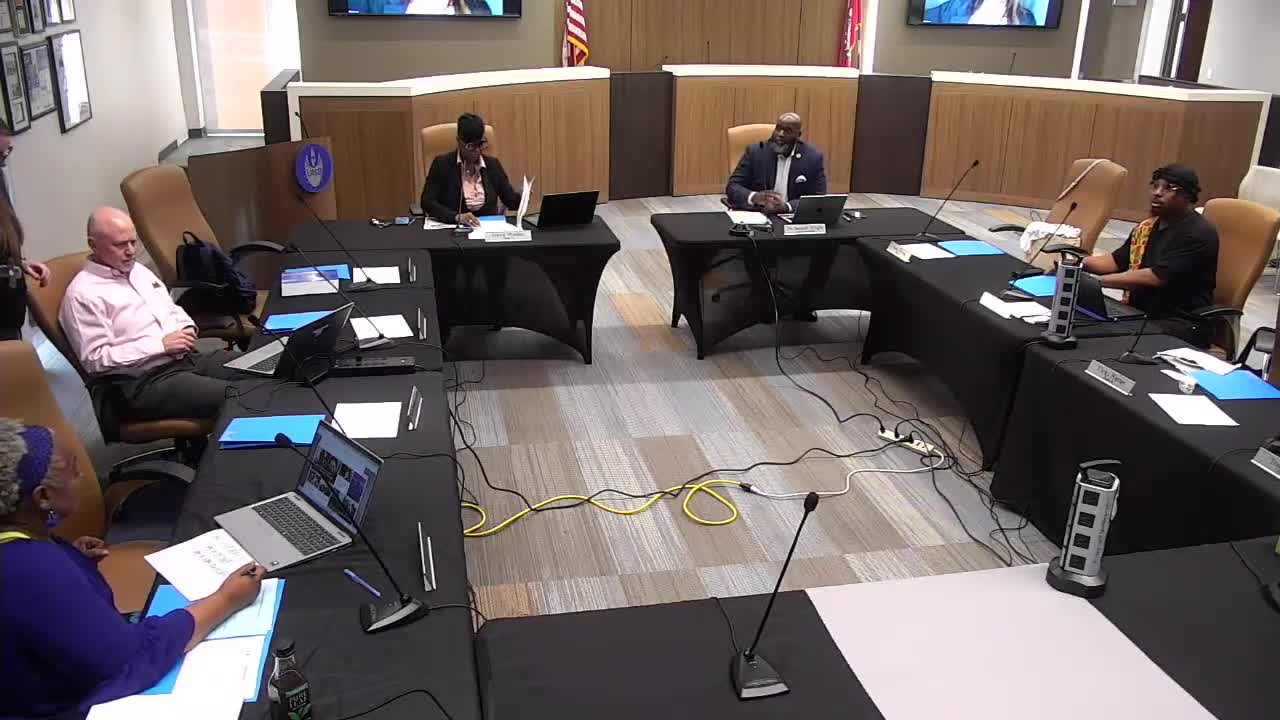LRSD staff propose sliding-fee scale for early-childhood program after state reimbursement cuts
Get AI-powered insights, summaries, and transcripts
Subscribe
Summary
District staff described cuts to state School Readiness Assistance (SRA) rates and proposed a sliding-fee scale and targeted tuition increases to maintain enrollment and program quality in LRSD’s early‑childhood classrooms.
Miss Jones, an LRSD staff member overseeing early‑childhood operations, told the board the district needs a sliding‑fee option for families who no longer qualify for state supports and for those in a middle income band who can’t otherwise afford quality childcare.
"We have now, 1,364 slots," Miss Jones said, and "we also have about a 188 roughly, families who are over income." She told the board the district used to receive higher daily SRA (School Readiness Assistance) rates for infants — roughly $65 per day — and that the district now receives about $36 per day for the same placements.
The shortfall, she said, is driving a recommendation to offer a sliding‑fee scale that would let families who earn too much to qualify for SRA nevertheless pay a reduced rate to keep children in LRSD classrooms. Under the example Miss Jones presented, families at about 225% of the federal poverty level would pay roughly 40% of the cost, with the state program covering the remaining 60% — a monthly family charge she estimated at about $200.
Director Strong, a board member, framed the proposal as continuation of the district’s longer‑term effort toward universal early childhood access. "This is really kind of where the rubber meets the road on the plan that we talked about," she said, praising the proposal as a way to avoid program closures other districts have faced after sudden rate cuts.
Director Rose also voiced support, calling the plan a “win‑win” and saying that expanding access at early ages could eventually boost enrollment.
No formal vote was taken during the work session. District staff said they would move forward with the recommended option unless the board directed otherwise and invited questions from board members. Staff emphasized the proposal was intended to preserve program quality, retain qualified teachers, and keep doors open for families across a broad income range.
The discussion included these specific figures and examples from staff: the district operates 1,364 early‑childhood slots; roughly 188 of those currently include families described as "over income" for SRA; an illustrative infant SRA rate fell from about $65/day to $36/day; the proposed sliding scale would place some families’ cost near $200 per month under the example shown.
Board members asked about likely consequences if the district adopted or rejected the sliding scale and about comparisons to surrounding private providers. Staff said the scale is intended to keep LRSD competitive on cost and retain program size and quality.
Staff characterized this as a sustainability step driven by state reimbursement changes and rising local costs for qualified teachers; they also noted prior family survey results indicating roughly two‑thirds of families said they would consider a co‑pay or sliding‑scale fee to access LRSD early childhood services.
Looking forward, staff said they would return with additional details if board members requested changes to the proposed structure, including final rates and administrative procedures for enrollment and billing.
